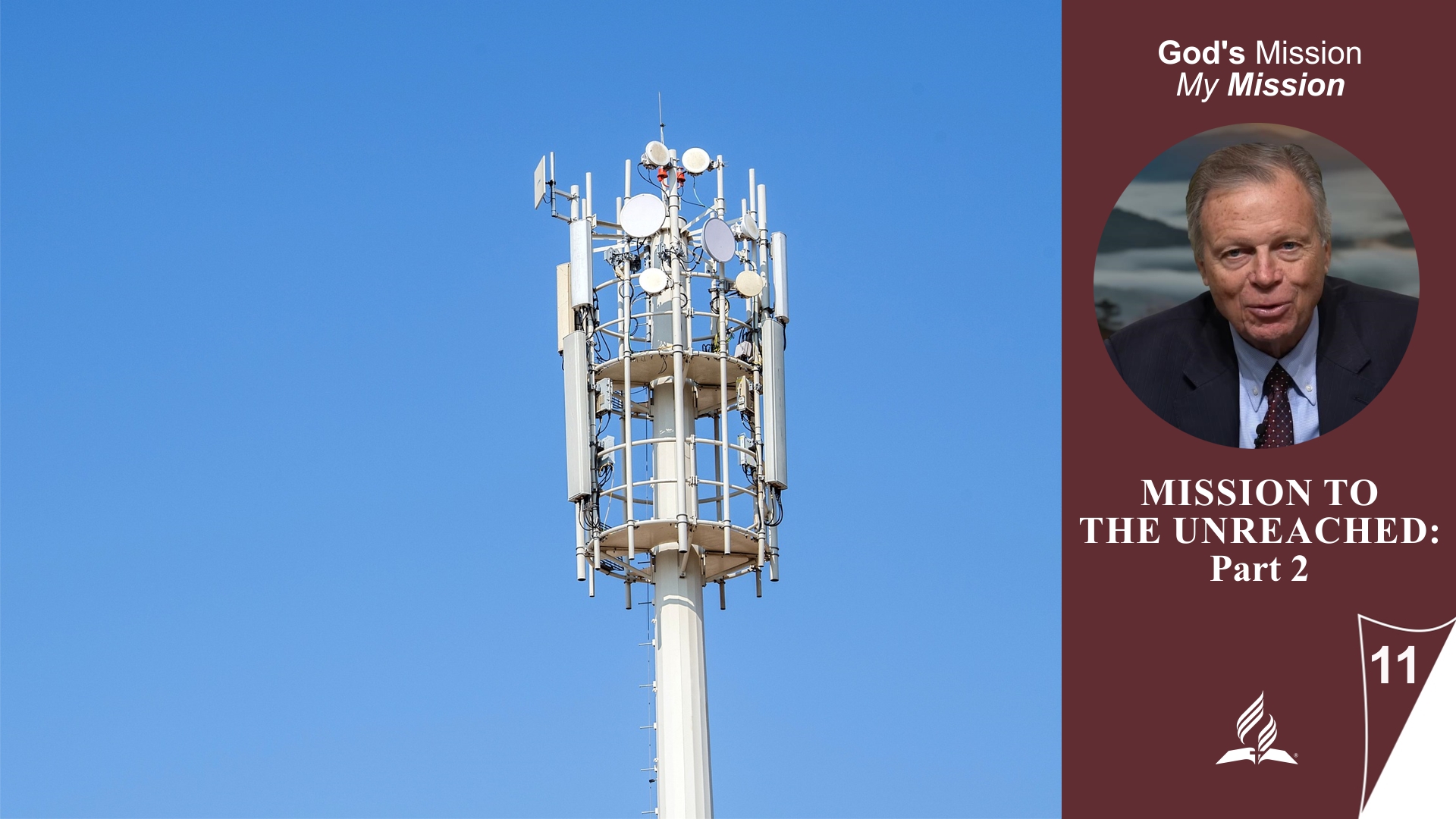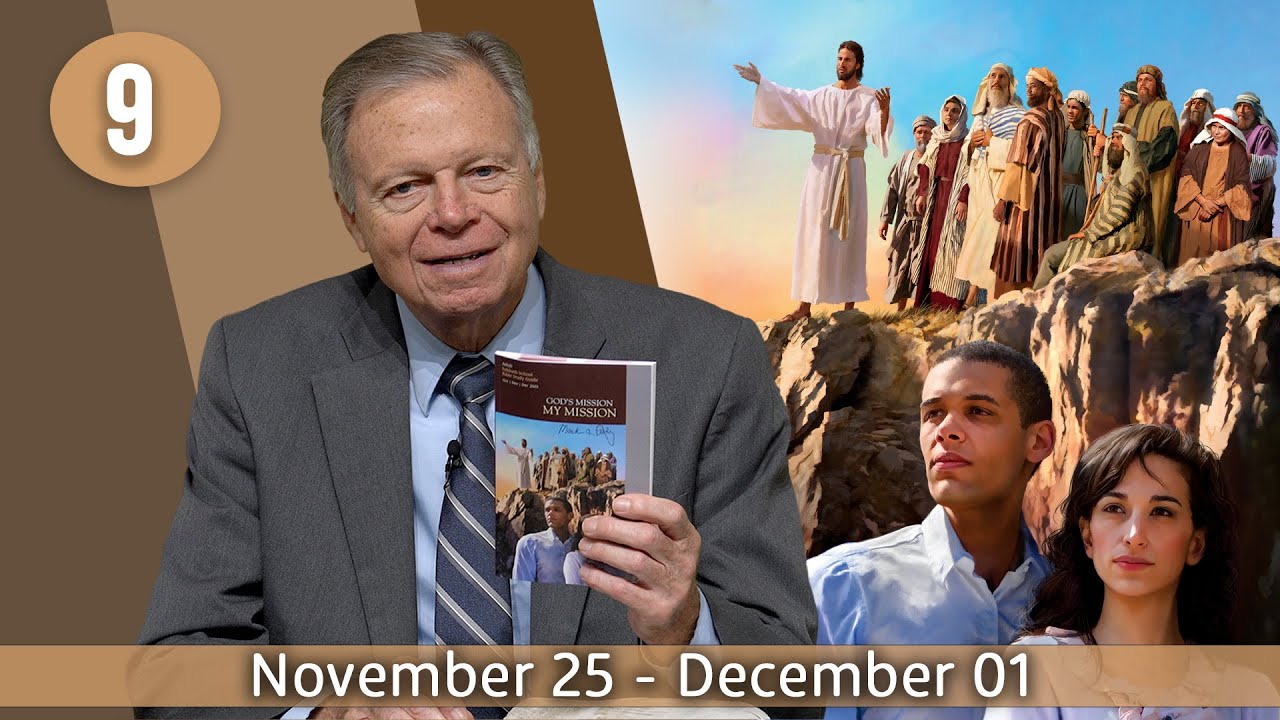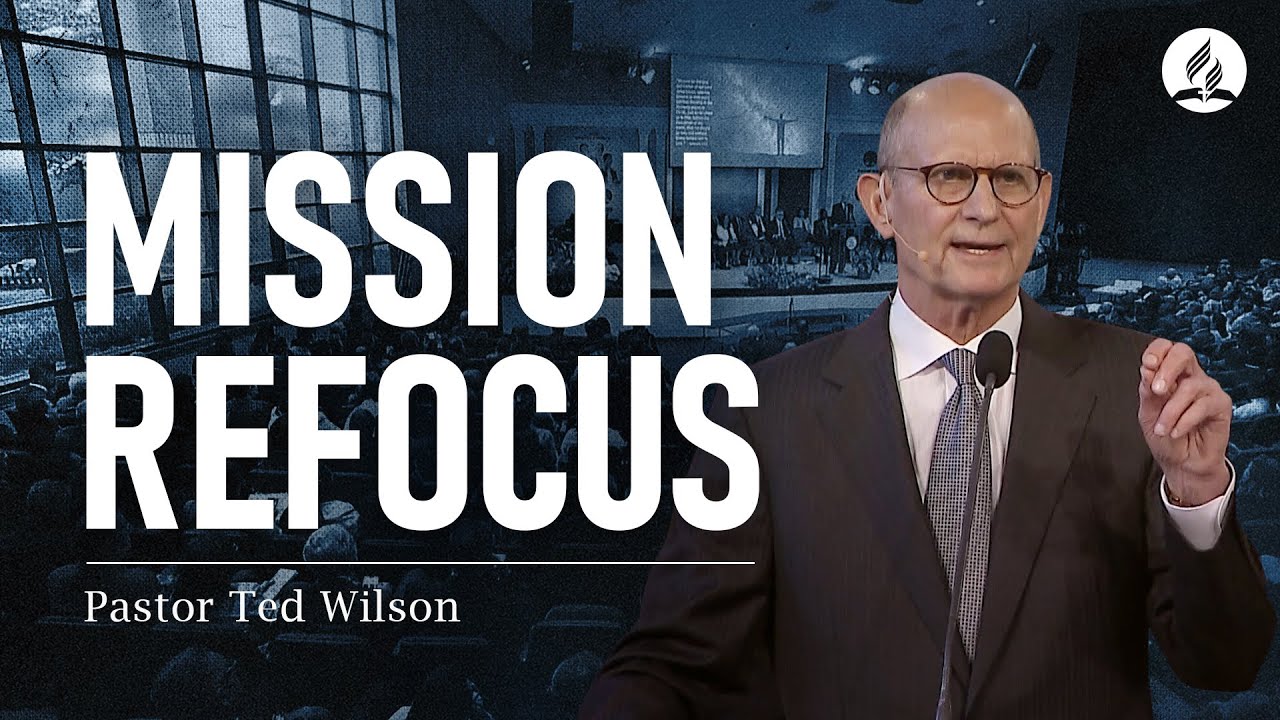
God’s Mission, My Mission – Lesson 10: Mission to the Unreached – Part 1 | Sabbath School with Pastor Mark Finley

Series GOD’S MISSION, MY MISSION with Pastor Mark Finley |
Lesson 10: Mission to the Unreached – Part 1 |
Memory Text: 1: Acts 17:24 – “ ‘The God who made the world and everything in it is the Lord of heaven and earth and does not live in temples built by human hands’ ” |
Content:
10.1 A Hebrew in Athens
Paul’s visit to Athens, a city full of idols, reveals his deep compassion for people living in sin without knowing the true God. In contrast to many believers who ignore idols in their surroundings, Paul responds in harmony with the Holy Spirit. He recognizes the need to bring the gospel to the unreached, idol-worshipping Gentiles. Paul virtually establishes the first Global Mission Study Center by using the marketplace to explore effective methods for evangelizing in a completely different cultural environment. His example teaches us that adaptation and an innovative approach are crucial to effectively spread the gospel in various contexts.
10.2 Paul in the Areopagus
Paul’s missionary zeal leads him to the Areopagus in Athens, where he speaks with impressive eloquence and intelligence about the gospel. The Athenians, shaped by a rich intellectual heritage, show interest in new ideas, but their skepticism towards Christian teachings remains. Luke emphasizes the intellectual capabilities of the Athenians and their history of philosophical thinking, while Paul skillfully incorporates their art, literature, and religion into his argumentation. This episode illustrates that Paul’s spiritual preparation relied not only on academic knowledge but also on his empathy and adaptability to successfully proclaim the gospel in an intellectual center.
10.3 Paul and the Unknown God
Paul demonstrates a remarkable tactic in Athens by not condemning the false religion of the Athenians but highlighting its positive aspects. His praise for their devotion and respectful approach to their spirituality creates a bridge for the gospel. Instead of presenting himself as an expert, he positions himself as an advocate and an interested party who has visited their sanctuaries. The clever use of the inscription “TO THE UNKNOWN GOD” as a common point allows Paul to find a topic that piques the interest of the Athenians. His approach shows empathy and a willingness to engage in dialogue with the people, providing space for the Holy Spirit to continue working.
10.4 Introducing a New God
Paul pursued a compassionate approach in Athens by directing the attention of the thinkers to the God of heaven. His words about a Creator God who does not dwell in a temple but cares for human needs fascinated a people shaped by unpredictable and cruel gods of Greek mythology. Paul initially praised their spiritual devotion and sincerity, showed respect for their faith aspects, and shared insights about their own religion. By introducing a recognizable God who strives to be known, he enabled the men on the Areopagus to take initial steps towards a loving God. The warning against rejecting this knowledge concluded Paul’s efforts, and his clever approach based on their existing beliefs contributed to progress in spreading the gospel.
10.5 Crossing a Line
Paul continued his testimony by skillfully using the beliefs of the Athenians and quoting some of their own authors who were close to biblical truth. This strategic approach allowed him to find a common ground and then lead them to the central message of the resurrection of Jesus and the hope it offers. The reactions to his words, ranging from mockery to genuine interest, highlight that Paul’s goal was for everyone to listen attentively and understand the message. His approach demonstrates that familiarity with the beliefs of others and the search for common ground are effective methods to reach people. While some rejected the message, others chose to investigate further and eventually became followers of Jesus. Paul’s approach reminds us of the importance of ensuring that people understand the message before rejecting it, with the ultimate decision resting with them.
God’s Mission, My Mission – Lesson 9: Mission to the Mighty | Sabbath School with Pastor Mark Finley

Series GOD’S MISSION, MY MISSION with Pastor Mark Finley |
Lesson 9: Mission to the Mighty |
Memory Text: 1: Matthew 16:26 – For what profit is it to a man if he gains the whole world, and loses his own soul? Or what will a man give in exchange for his soul? |
Content:
9.1 Nebuchadnezzar
The emphasis on the “unlimited atonement” in Adventist doctrine underscores the universal redemption through Christ, irrespective of predetermined groups. The story of Nebuchadnezzar in Daniel 4 strikingly illustrates how even one of the most powerful men in the world was brought to reason through God’s intervention. This highlights that God’s mercy extends not only to the weak but also reaches the rich and powerful. Nebuchadnezzar’s humiliation due to pride and arrogance serves as a reminder that God chooses different paths to reach people, regardless of their power and status.
9.2 Naaman
The story of Naaman in 2 Kings 5 emphasizes the universality of Christ’s sacrifice for people of all backgrounds and statuses. Naaman’s extraordinary plea after his healing reveals his sincere devotion to the living God, even though pagan influences still lingered in his thinking. His willingness to faithfully serve the Lord despite challenges in a pagan land attests to Naaman’s genuine faith. Elisha’s response, “Go in peace,” emphasizes God’s gentle guidance for converts who are meant to grow step by step in faith.
9.3 Witnessing to the Learned: Nicodemus
The story of Nicodemus shows that external wealth and education do not necessarily fulfill a person’s spiritual needs. Despite his high position and knowledge, Nicodemus sought spiritual fulfillment and found it in Jesus. The encounter with Christ revealed that outward appearances can be deceptive and that everyone, regardless of social status, needs salvation. Nicodemus’s later actions, indicating a strong influence by Jesus, demonstrate the transformative power of the Gospel that can also reach seemingly powerful individuals.
9.4 Mission to the Rich
Jesus’s encounter with the rich young man in Matthew 19 emphasizes the challenge that wealth can pose to entering the kingdom of God. The statement that it is easier for a camel to go through the eye of a needle does not imply that the rich cannot be saved but highlights the potential obstacles that wealth can present. Both the rich and the poor face the same fate, death, and urgently need salvation through faith in Jesus Christ. The comparison between the rich young man and Zacchaeus in Luke 19 shows that the response to Jesus is crucial, and while the rich man clung to his possessions, Zacchaeus was willing to change his life and respond to Jesus’s call.
9.5 Mission to the Powerful
The text emphasizes Jesus’s ability to befriend the mighty, eliciting admiration and respect, but also disdain. Examples of Nicodemus and Joseph of Arimathea show that many rich and powerful individuals initially come to Jesus in secret to ensure he is truly the Son of God. The account of Joseph of Arimathea in Matthew 27 illustrates how God used a wealthy man influenced by Jesus for His purposes.
Mission among the mighty requires wisdom to know where to begin. It is often more effective to let the mighty come to you rather than actively seeking them out, as Jesus did. The subtle partnership with the mighty should be based on genuine service, as they want to be part of something good that transforms lives. The call to invest time in the lives of the rich and powerful and to pray for them demonstrates a practical approach to mission among this group.
Mission Refocus | Pastor Ted Wilson

Pastor Ted Wilson, president of the General Conference of Seventh-day Adventists, shares a special message this week about the importance of ‘Mission Refocus’ as a global organization and local churches, communities, and families. As Seventh-day Adventists, we are called to a special mission for God in these last days of Earth’s history. We are Chosen for Mission to proclaim the Three Angels’ Messages, a mission that will be accomplished through the Holy Spirit despite current and future attacks.
Mission Refocus is more than a Strategic Plan for the Adventist Church, it is a missional lifestyle for members, leaders, and communities.
Source: https://fulfilleddesire.net/mission-refocus-pastor-ted-wilson/
God’s Mission, My Mission – Lesson 8: Mission to the Needy | Sabbath School with Pastor Mark Finley

Series GOD’S MISSION, MY MISSION with Pastor Mark Finley |
Lesson 8: Mission to the Needy |
Memory Text: 1: Matthew 25:40 – And the King will answer and say to them, ‘Assuredly, I say to you, inasmuch as you did it to one of the least of these My brethren, you did it to Me’ . |
Content:
8.1 The Faith of Friends
The story of the friends who brought a needy person to Jesus shows us the importance of faith, commitment, and creativity in serving others. These men took responsibility for caring for their friend, and God calls us to do the same. We should not hesitate to bring those in need to Jesus, as He is the great physician ready to forgive and heal the suffering. Ellen White encourages us to actively address the needs of the helpless and be a part of the plan of salvation.
8.2 Christ’s Approach Alone
Christ’s approach to serving the needy presents us with a five-step process to serve others and gain their trust. First, we must put ourselves in their shoes to understand their needs. Compassion is the key without expecting anything in return. The third step involves practical actions to fulfill these needs. Through these steps, we build trust and, ultimately, lead people to Jesus to offer them eternal life. This method demonstrates true success in service.
8.3 Refugees and Immigrants
The topic of refugees and immigrants is of great importance in today’s world, with millions of people worldwide seeking refuge and assistance. The story of Jesus as a refugee in Egypt, as depicted in Matthew 2:13-14, serves as a reminder that even the Holy Family once fled danger and sought protection. It emphasizes the importance of supporting and advocating for immigrants and refugees, despite cultural and linguistic differences, as highlighted in Bible verses such as Deuteronomy 10:19, Psalm 146:9, Romans 12:13, and Leviticus 23:22. We should engage through prayer, information, and active assistance, even when it might pose political challenges.
8.4 Assisting the Injured
The world can often be hurtful, regardless of material wealth or poverty. Jesus’ mission to bring the gospel to those in need and heal broken hearts reminds us of our duty to pay attention to the needs of people around us and provide help. This should be done unconditionally, driven by selfless love and compassion, aiming to serve those in need rather than focusing solely on winning them for Jesus. Our service should be rooted in understanding and genuine assistance to support individuals in their diverse life situations.
8.5 Greater Love
The greatest love we can show is to lay down our lives for our friends, as mentioned in John 15:13. We should apply this principle in our service to others by actively approaching people and bringing them blessings, just as Jesus did. By striving to build friendships, whether with refugees, immigrants, or neighbors, we can both serve them and convey the message of God’s love. Our goal should be to be true friends to them and lead them to God as the ultimate helper.
- « Previous Page
- 1
- 2
- 3
- 4
- …
- 9
- Next Page »
